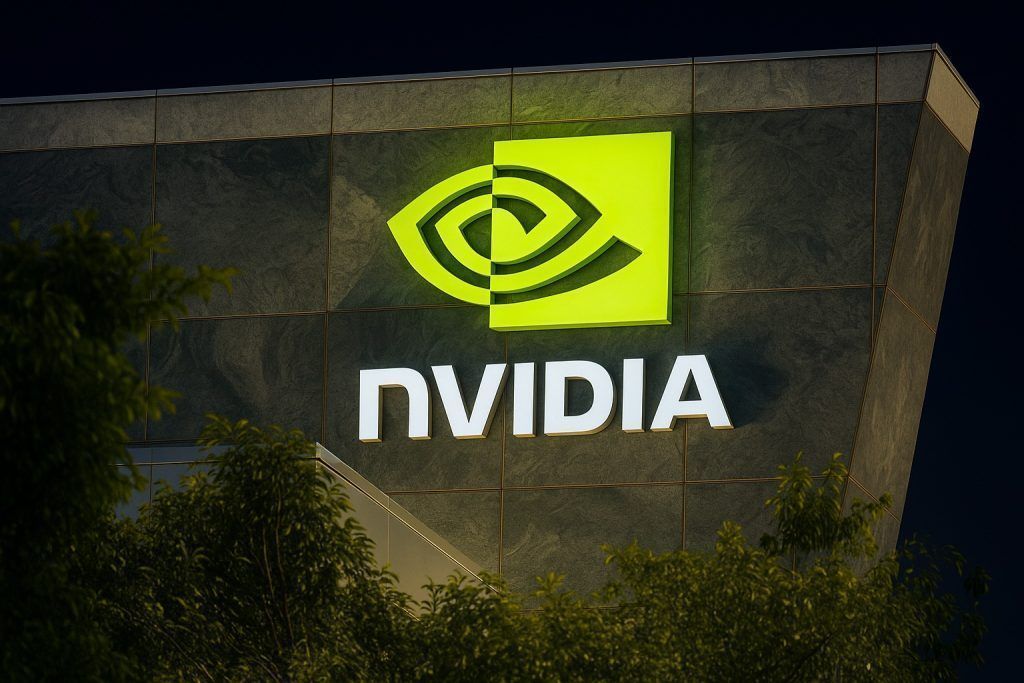- Security analysts reported a 133% rise in Iranian state-sponsored attacks through May–June 2025, with Nozomi Networks tracking 28 incidents across six APT groups (MuddyWater, APT33, OilRig, CyberAvengers, Fox Kitten, Homeland Justice), and MuddyWater alone carrying out five breaches targeting OT/ICS.
- A joint alert by CISA, the FBI, NSA and DoD warned Iranian hackers may target defense, water, and aviation firms amid rising Middle East tensions.
- In Europe, Chinese state-backed hackers exploited a zero-day in Ivanti VPN appliances to infiltrate French government networks, with ANSSI linking the operation to the UNC5174 group.
- The U.S. Department of Justice announced the takedown of a covert North Korean IT operation that planted agents in tech jobs under false identities to fund Pyongyang.
- Canada banned Chinese surveillance giant Hikvision from all operations in the country, including government systems, over espionage fears.
- Qantas Airways suffered Australia’s biggest data breach in years, exposing 5.7 million customer records, with the breach linked to the Scattered Spider group and CEO Vanessa Hudson issuing an apology.
- Global IT distributor Ingram Micro experienced a SafePay ransomware attack that disrupted operations across multiple continents, forcing shutdowns and exploiting a VPN weakness to gain entry.
- Episource’s breach in the healthcare sector impacted 5.4 million individuals.
- Nearly a dozen Chrome extensions on Chrome and Edge secretly harvested data from over 2.3 million users by injecting malicious code after updates.
- Microsoft’s July 2025 Patch Tuesday fixed 137 security flaws in Windows and other products, including a zero-day in Microsoft SQL Server (CVE-2025-49719) that could allow unauthorized memory access, and 14 critical remote code execution fixes.
Introduction
The cyber threat landscape has been exploding in mid-2025, with state-backed hackers targeting critical infrastructure, ransomware gangs wreaking havoc on businesses, and new vulnerabilities exposing millions of users. In this comprehensive roundup for July 14, 2025, we cover the biggest cyber incidents and developments across government, enterprise, and consumer domains. From Iranian APTs escalating attacks on U.S. industries to a massive airline data breach and surprise ransomware shutdowns, the past week has kept defenders on high alert. We also highlight critical software flaws, policy shifts, and expert insights – including warnings about how humans remain the weakest link in cybersecurity.
State‑Sponsored Cyber Attacks Fuel Geopolitical Tensions
Iranian hackers have dramatically escalated their cyber offensive against U.S. critical infrastructure. Security analysts observed a 133% surge in Iranian state-sponsored attacks through May and June 2025, primarily hitting the transportation and manufacturing sectors news.networktigers.com. At least 28 incidents were tracked by Nozomi Networks, implicating six advanced persistent threat (APT) groups – including MuddyWater, APT33, OilRig, “CyberAvengers,” Fox Kitten, and Homeland Justice news.networktigers.com. MuddyWater alone carried out five confirmed breaches, focusing on operational technology (OT) and industrial control systems – a possible shift in Iran’s cyber warfare strategy news.networktigers.com. In response, U.S. agencies like CISA and DHS issued urgent advisories calling for critical infrastructure operators to bolster defenses immediately news.networktigers.com. A joint alert from CISA, the FBI, NSA, and DoD even warned that Iranian hackers may soon target defense, water, and aviation firms amid rising Middle East tensions 1 .
Other nation-state threats are also making headlines. In Europe, Chinese state-backed hackers were caught exploiting zero-day vulnerabilities in Ivanti VPN appliances to infiltrate French government networks redseal.net. France’s cybersecurity agency (ANSSI) tied the campaign to a group dubbed “UNC5174” (a contractor for China’s intelligence service) aiming to exfiltrate sensitive data redseal.net redseal.net. Meanwhile, the U.S. Department of Justice announced the takedown of a covert North Korean IT operation that had placed North Korean agents in tech jobs under false identities to fund Pyongyang’s regime redseal.net. And in a bold national security move, Canada banned Chinese surveillance giant Hikvision from all operations in the country over espionage fears, even prohibiting its products in government systems redseal.net. Each of these developments underscores how closely intertwined cybersecurity is with geopolitics in 2025.
Major Breaches and Ransomware Hits Rock Enterprises
It’s been a brutal period for corporate cybersecurity, with several high-profile breaches and ransomware attacks. Qantas Airways suffered Australia’s biggest data breach in years, after a hacker accessed a third-party call center platform holding 5.7 million customer records news.networktigers.com. The exposed data included names, contact details, birth dates, and frequent flyer numbers – even meal preferences for some flyers news.networktigers.com. Qantas’s CEO Vanessa Hudson apologized to customers and emphasized “our customers trust us with their personal information and we take that responsibility seriously” reuters.com. The attack is suspected to be the work of the Scattered Spider group (known for social engineering help desks), and industry experts are alarmed by the scale and coordination of these airline-targeted hacks reuters.com. “What makes this trend particularly alarming is its scale and coordination, with fresh reports that Qantas is the latest victim,” warned Mark Thomas of security firm Arctic Wolf reuters.com. Mandiant’s CTO Charles Carmakal added that global airlines should be on high alert for social engineering intrusions, given how Scattered Spider impersonates tech staff to steal credentials reuters.com 2 .
Ransomware gangs continue to hammer organizations worldwide. Global IT distributor Ingram Micro was hit by a devastating SafePay ransomware attack that disrupted its operations on multiple continents news.networktigers.com news.networktigers.com. The breach forced Ingram to shut down critical systems (like its Xvantage distribution platform), and investigators believe the attackers exploited a VPN weakness – a known SafePay tactic – to gain entry news.networktigers.com news.networktigers.com. Ingram Micro acknowledged the attack and said it is “working diligently to restore the affected systems,” apologizing for the major outage news.networktigers.com. In the healthcare sector, a breach at services firm Episource was revealed to have impacted 5.4 million individuals, showing that no industry is safe 3 .
Surprisingly, some ransomware groups are calling it quits – or so they claim. The new ransomware crew SatanLock announced an abrupt shutdown via its dark web leak site, even vowing that all remaining stolen files “will all be leaked today” as a final act news.networktigers.com. Active only since April, SatanLock hit 67 victims in its short spree news.networktigers.com. Its exit follows the self-professed closure of another gang, Hunters International, which released free decryptors before rebranding as “World Leaks” to focus on data theft rather than encryption news.networktigers.com. It’s unclear if SatanLock will truly disappear or simply resurface under a new name – a common ransomware survival tactic news.networktigers.com. Meanwhile, a new ransomware player dubbed “BERT” is rising: first spotted in April, BERT specializes in terminating VMware ESXi virtual machines to maximize damage before encryption, a technique reminiscent of the infamous REvil gang integrity360.com integrity360.com. BERT’s malware can even kill up to 50 VMs at once and disables security tools via PowerShell, hitting targets across healthcare, tech, and events in Asia, Europe, and the U.S. integrity360.com integrity360.com. These developments paint a chaotic ransomware landscape – with some actors innovating and expanding, while others retreat under pressure.
Critical Vulnerabilities and Exploits Exposed
July has brought a flurry of high-severity vulnerabilities to light, prompting urgent patching and raising new alarms about software and hardware security. Microsoft’s Patch Tuesday for July 2025 was one of the largest ever, addressing 137 security flaws in Windows and other products integrity360.com. This included a publicly disclosed zero-day bug in Microsoft SQL Server (CVE-2025-49719) that could allow unauthorized access to server memory integrity360.com. Microsoft also fixed 14 critical issues – many enabling remote code execution – across Office, SharePoint, Hyper-V and more integrity360.com. With dozens of privilege escalation and RCE bugs now patched, administrators are urged to update immediately to prevent exploitation integrity360.com 4 .
Critical holes aren’t limited to software – even our cars aren’t immune. Researchers uncovered a set of Bluetooth flaws called “PerfektBlue” in a widely used automotive Bluetooth stack, potentially affecting millions of vehicles from Mercedes-Benz, Volkswagen, Skoda and more news.networktigers.com news.networktigers.com. The vulnerabilities allow easy remote exploitation via Bluetooth, letting an attacker execute code through the infotainment system once paired news.networktigers.com. Frighteningly, gaining code execution on a car’s in-vehicle infotainment (IVI) could enable an attacker to track the vehicle’s GPS location, eavesdrop on cabin audio, access contacts, and even move laterally into critical car controls like the engine news.networktigers.com news.networktigers.com. Automakers are investigating fixes as this discovery raises concern about vehicular cyber-safety.
Web users also faced stealthy threats from trusted tools. Nearly a dozen Chrome browser extensions (also available on Microsoft Edge) were revealed to be secretly harvesting data from over 2.3 million users news.networktigers.com news.networktigers.com. The extensions posed as innocuous utilities (e.g. color pickers, emoji keyboards or VPNs) and even had positive reviews, but researchers found they were later updated to inject malicious code news.networktigers.com news.networktigers.com. “Combined, these eighteen extensions have infected over 2.3 million users across both browsers, creating one of the largest browser hijacking operations we’ve documented,” the investigators said in their report news.networktigers.com news.networktigers.com. Google and Microsoft have been scrambling to remove the rogue add-ons, but the incident highlights the risk of supply-chain attacks via software updates in browser ecosystems.
Even tech giants had to scramble with exploits this month. Google pushed an emergency fix for Chrome’s fourth zero-day of 2025, a V8 JavaScript engine bug (CVE-2025-6554) that attackers were actively abusing via malicious web pages redseal.net. And Cisco warned enterprises of a critical 9.9/10-rated flaw in its Unified Communications Manager that could let unauthenticated attackers gain root access to voice/video network systems if left unpatched redseal.net. On the flip side, researchers at Moonlock revealed that a notorious piece of Mac malware – the Atomic macOS Stealer (AMOS) – has been upgraded with a stealthy backdoor for persistent remote control of infected Macs news.networktigers.com news.networktigers.com. This marks only the second known large-scale macOS backdoor seen in the wild (the first being one used by North Korean APTs), and experts warn the AMOS upgrade represents “a significant escalation in both capability and intent” by its authors 5 .
Finally, not all security failures came from exotic hacks – some were painfully simple. Researchers Ian Carroll and Sam Curry discovered that McDonald’s online hiring system was protected by nothing more than the password “123456”, potentially exposing 64 million job applicants’ records news.networktigers.com news.networktigers.com. By logging into the misconfigured admin panel, they accessed a trove of names, contacts and even chatbot interview transcripts. “Had someone exploited this, the phishing risk would have actually been massive,” noted Curry, given that eager job seekers would be expecting follow-up emails from the system news.networktigers.com news.networktigers.com. McDonald’s vendor quickly fixed the flaw and no malicious access was detected, but the incident is a stark reminder that basic security hygiene (like strong passwords and audits of third-party platforms) cannot be overlooked.
Consumer Scams and Security Alerts
Cyber threats are hitting consumers on all fronts, leading to new warnings about scams and fraud campaigns. With the hugely popular Amazon Prime Day shopping event just concluded, researchers observed a surge of phishing and counterfeit websites aimed at shoppers. Over 1,000 new Amazon-related domains were registered in June alone – 87% of them malicious or suspicious – as criminals set up fake Amazon login pages and “customer support” sites to steal users’ passwords and credit card details news.networktigers.com news.networktigers.com. Phishing emails posing as refund notices or account problem alerts also spiked around the event. One scam campaign even used the subject line “Refund Due – Amazon System Error” to lure victims into entering credentials on a spoofed site news.networktigers.com. “Cyber threats around Prime Day are no accident,” warned Omer Dembinsky of Check Point, noting that attackers deliberately piggyback on major sales events – but “with the right habits, shoppers can enjoy deals without falling for the bait” news.networktigers.com news.networktigers.com. Experts advise consumers to avoid clicking links in unsolicited emails, verify website URLs carefully, enable two-factor authentication, and use secure payment methods when shopping online 6 .
Beyond retail scams, a massive global investment fraud is also underway, targeting would-be investors in over 50 countries. This scheme uses fake news websites made to look like CNN, BBC, or other trusted outlets, complete with fabricated stories and endorsements by celebrities or banks, to promote bogus “passive income” opportunities integrity360.com integrity360.com. The scammers drive traffic to these sites via ads on Google and social media, then trick victims into signing up on sham trading platforms with names like Trap10 or Eclipse Earn integrity360.com integrity360.com. After people register, “brokers” call them to request ID documents and crypto deposits, even showing fake profit dashboards to entice larger investments integrity360.com. In reality, victims’ money and personal data get stolen, fueling follow-on identity theft and phishing. Authorities worldwide are scrambling to shut down these baiting news site (BNS) campaigns, which illustrate the sophisticated multi-phase scams hitting consumers globally integrity360.com 7 .
Even the healthcare arena has seen social engineering targeting the public. The FBI issued an alert about criminals posing as health insurance representatives or claims officers to steal data from patients and providers redseal.net. Using phone calls, emails or texts, the fraudsters convince people to hand over sensitive medical and financial information or even pay fake refunds. Impersonating trusted entities (like well-known insurers or government agencies) and exploiting previously leaked personal data makes these scams highly convincing, explained Errol Weiss of the Health-ISAC redseal.net. Both patients and medical staff are urged to verify identities through official channels and be skeptical of unsolicited requests – a reminder that vigilance is crucial even outside the traditional IT realm.
Government and Policy Cyber Developments
Amid the onslaught of cyber incidents, governments and organizations worldwide are launching new initiatives and rules to bolster cybersecurity. In the United States, the Department of Defense struck a $200 million deal with OpenAI – the company behind ChatGPT – to develop AI-powered cybersecurity tools for national defense weforum.org. Under the “OpenAI for Government” program, the tech firm will help the Pentagon apply artificial intelligence to cyber defense, augmenting everything from threat detection to automating security tasks weforum.org. This reflects a broader trend of governments partnering with industry leaders to leverage AI against evolving threats.
U.S. officials are also shoring up cyber defenses in the wake of nation-state attacks. After waves of Iranian, Chinese, North Korean and Russian hacks targeted Western infrastructure, Microsoft offered free cybersecurity services to European governments to improve their resilience weforum.org. Similarly, French telecom giant Orange opened a new defense and homeland security division to support European public-sector cybersecurity needs weforum.org. On the policy front, the U.S. House of Representatives took a hard line on messaging security by banning the use of WhatsApp on House-issued devices, citing concerns over the app’s data handling and lack of transparency weforum.org. (This follows an earlier ban on TikTok, extending lawmakers’ efforts to secure official communications.)
Across the globe, other policy shifts aim to counter cybercrime. In Singapore, a new law now empowers police to freeze a person’s bank accounts and halt fund transfers on the spot if they suspect the person is falling victim to a scam weforum.org. This proactive measure is designed to disrupt scammers’ money flow and was invoked after a rise in online banking fraud. And in South Korea, regulators slapped a major fine on telecom provider SK Telecom following a leak of 27 million customer records – forcing the company to compensate users and invest in better data security weforum.org. Meanwhile, U.S. regulators turned their focus to the tech that powers modern healthcare: the FDA issued updated guidance on medical device cybersecurity, requiring any internet-connected “cyber device” (like insulin pumps or pacemakers) to include robust security features in design redseal.net redseal.net. The FDA now expects device makers to provide a software bill of materials, vulnerability management plans, and assurances that products can be updated against threats redseal.net. Experts say this underscores that cybersecurity is now integral to safety for medical devices redseal.net – though they caution that the FDA’s limited budget and staff could slow enforcement.
Finally, leadership changes highlight the growing importance of cyber expertise in government. In the U.S., a 34-year NSA veteran, Patrick Ware, was appointed as the top civilian executive at U.S. Cyber Command, stepping in during a period of leadership turmoil at the military’s cyber HQ redseal.net redseal.net. Ware’s appointment comes as Cyber Command undertakes a “2.0” overhaul and faces questions about its future direction redseal.net. Around the world, it’s clearer than ever that cybersecurity is a strategic priority at the highest levels – prompting bold investments, regulations, and organizational changes intended to counter the relentless cyber onslaught.
Conclusion
From state-sponsored sabotage to simple password mistakes, the events of July 2025 underscore a stark reality: cyber threats spare no one. Governments, global enterprises, and everyday consumers all found themselves in the crosshairs of attackers exploiting any available weakness. The flip side is a wave of defensive action – from big tech collaborations and new laws to public awareness campaigns – all striving to turn the tide. As one expert noted, the human element remains pivotal: attackers often succeed by tricking people rather than outsmarting technology weforum.org. The coming months will test whether improved vigilance, smarter policies, and cutting-edge AI tools can finally put a dent in the cybercrime epidemic, or whether adversaries will continue to stay one step ahead in this escalating digital arms race.
Sources: The information and quotes in this report are drawn from credible news outlets and security experts, including Reuters, BleepingComputer, Wired, Infosecurity Magazine, SecurityWeek, and official government advisories reuters.com reuters.com news.networktigers.com news.networktigers.com news.networktigers.com weforum.org, among others. Each event and claim is linked to its primary source for further reading and verification. Stay tuned for more updates as the cybersecurity world evolves.






